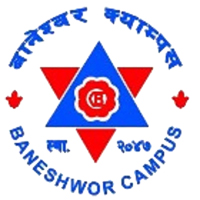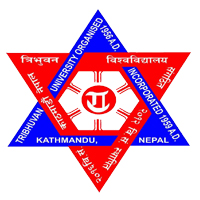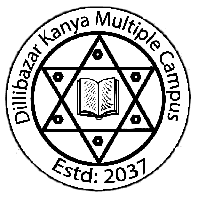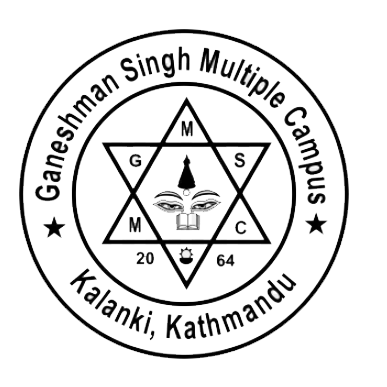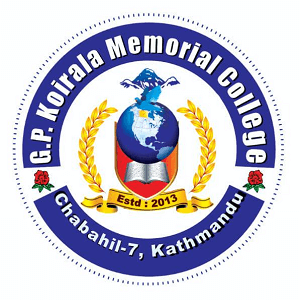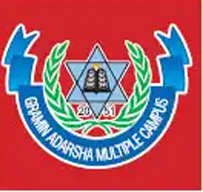Overview
Master of Education (M.Ed) at Rainbow International College, Kathmandu (Tribhuvan University)
Overview
Master of Education (M.Ed) at Rainbow International College (RIC), Dallu–Chhauni, runs under Tribhuvan University (TU), Faculty of Education, as a two-year, four-semester graduate program. The course load follows TU’s revised semester curriculum and credit policy. At RIC, the M.Ed is offered in English Education and Educational Planning and Management (EPM), guided by TU’s official syllabi and semester rules. The Faculty of Education states that M.Ed carries 69 credit hours in total, combining core professional study, specialization courses, teaching practice, and a thesis.
Highlights
-
Two academic years, four semesters, semester-end examinations under TU.
-
Total 69 credits: 21 core professional, 39 specialization, 3 teaching practice, 6 thesis.
-
Course units carry 3 credits (48 teaching hours) per paper; syllabi and assessment formats are issued centrally by TU FoE.
-
Official first, second, third, and fourth semester curricula and course outlines are publicly available.
Curriculum Details
TU’s revised curriculum structures the M.Ed into four coordinated semesters:
-
Core professional courses (21 credits): Foundations of Education, Advanced Educational Psychology, Curriculum & Practice, Education & Development, Research Methodology in Education, Measurement & Evaluation, Contemporary Educational Issues. Example first-semester papers include Ed. 511 Foundations of Education and Ed. 513 Advanced Educational Psychology.
-
Specialization sequence (39 credits): Students at RIC select either:
-
English Education: papers on phonetics/phonology, English usage, ELT pedagogy and materials, testing and teacher development, discourse studies, and advanced readings.
-
Educational Planning & Management (EPM): papers on planning for change, leadership and management, administration and supervision, organizational behaviour in education, financing of education, school management, social justice in education, monitoring and evaluation.
Course-by-course outlines and learning hours are defined in TU’s semester documents.
-
-
Teaching practice (3 credits): a supervised school/college-level practicum in the final phase as per FoE guidelines.
-
Thesis (6 credits): original research under faculty supervision, submitted and defended according to FoE standards.
Objectives
The program aims to develop graduate-level understanding of education theory and policy, deepen subject-specific expertise in English Education or EPM, build practical teaching and leadership capacity through a structured practicum, and cultivate research skills for evidence-based improvement in Nepal’s education system. These aims reflect the FoE’s published framework for the M.Ed degree.
Scope
Graduates contribute to schools, colleges, and education projects that seek academically trained teachers, coordinators, and planners. The English Education track supports roles in secondary and tertiary teaching, ELT resource development, and assessment. The EPM track aligns with roles in academic coordination, school leadership support, program supervision, and education project management. The 69-credit structure and the thesis component add credibility for MPhil/PhD pathways within TU or other universities.
Learning Outcomes
Students completing the M.Ed at RIC should be able to:
-
Explain major foundations of education and their relevance to Nepal’s schooling context.
-
Analyze curriculum, assessment, and classroom processes using current FoE models and research methods.
-
Plan, conduct, and report a research study that meets FoE’s thesis standards.
-
Demonstrate track-specific mastery:
-
English Education: plan ELT lessons/materials, apply language assessment tools, support teacher development.
-
EPM: prepare planning documents, apply leadership and supervision principles, manage school improvement tasks.
-
Skill Development Modules
-
Inquiry and analysis: educational research design, quantitative/qualitative approaches, measurement and evaluation.
-
Curriculum and instruction: curriculum processes, practice teaching, micro-teaching, and reflective lesson study as outlined in semester syllabi.
-
Leadership and management (EPM): planning, EMIS exposure, resource management, monitoring and evaluation.
-
Language and pedagogy (English Ed.): phonetics/phonology, usage, testing, materials development, and classroom discourse.
Teaching Methodology
RIC follows FoE’s semester pedagogy: interactive lectures, seminar presentations, group tasks, case work, school visits, supervised practicum, and research supervision. Each 3-credit paper targets 48 contact hours with internal assessment plus semester-end examination, as specified in FoE documents.
Admission Requirements
-
Eligibility: Bachelor’s degree in Education from TU or a TU-recognized university; applicants from related fields follow FoE’s specialization rules where applicable.
-
Entrance process: FoE conducts an online entrance registration for master’s programs; the application portal is entrance.tufoe.edu.np. Intake notices and timelines are published on FoE’s official site and the entrance portal. Campus-level admission follows the FoE merit list and verification of documents.
Career Opportunities
-
Teaching and teacher education: secondary/higher secondary teaching; ELT mentoring; resource person for training and workshops.
-
Academic coordination and leadership: department coordination, examination and assessment roles, school/college administration support.
-
Education projects: planning, monitoring, training facilitation, and reporting for NGOs/INGOs and local bodies that work in school improvement.
-
Research and policy support: assistance in survey work, classroom studies, curriculum pilots, and institutional quality reviews.
Scholarships and Financial Aid
FoE sets the national academic framework; individual campuses announce merit or need-based provisions through official notices. Students should track the latest RIC and FoE updates during admission and confirm required documents for any scholarship process (citizenship/ID, transcripts, entrance score sheet, and category certificates where relevant).
Why Choose This Course?
-
The M.Ed at RIC follows TU’s standardized semester curriculum and 69-credit structure, which ensures national recognition for employment and further study.
-
Specialization in English Education or EPM lets you focus on classroom practice or institutional planning according to your goals, while the thesis builds the research habit needed for long-term growth.
-
Semester syllabi, contact hours, and assessment formats are transparent and verifiable on TU’s official portals.
Conclusion
M.Ed at Rainbow International College provides a TU-affiliated, 69-credit, four-semester path that balances professional study, specialization, practicum, and independent research. Students who want clear rules, authentic syllabi, and recognized outcomes can rely on the Faculty of Education’s official structure and RIC’s academic delivery grounded in those documents.


